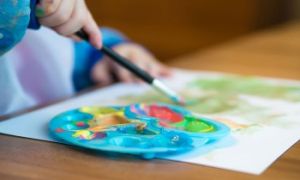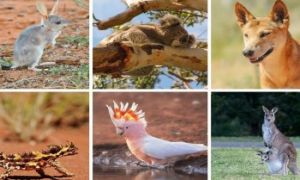

In early childhood education, the role of the Educational Leader is both visionary and grounded. It’s not just about overseeing curriculum—it’s about cultivating a culture of inquiry, emotional safety, and continuous growth. Each day brings opportunities to mentor, reflect, advocate, and co-create learning environments where children and educators thrive.
This guide outlines the core responsibilities and daily tasks that shape pedagogical leadership. It honours the invisible labour, the quiet coaching moments, and the intentional decisions that uphold quality practice and sector integrity.
In early childhood services, leadership is relational. Whether you're guiding a new educator or supporting a seasoned team member through change, knowing when to coach and when to mentor is essential. These approaches aren’t interchangeable; they serve different purposes, require different skills, and yield different outcomes. This cheat sheet helps leaders distinguish between coaching and mentoring, apply each effectively, and embed both into everyday practice.
In the fast-paced world, leadership isn’t just about compliance or curriculum; it’s about connection. One of the most powerful, yet often overlooked, tools in a leader’s toolkit is the humble check-in ritual. These moments of intentional pause can transform team dynamics, foster psychological safety, and embed a culture of care into the everyday rhythm of a service.
A “Look-For” guide is a practical tool used by educational leaders and mentors to identify and reflect on key indicators of quality practice during observations, walkthroughs, or self-assessments. Think of it as a lens—it helps you focus on what matters most in a learning environment.
An educational leader in early childhood plays a pivotal role in shaping not just curriculum, but the entire culture of a service. The following article provides information on standout qualities that define effective leadership in this space and applying these qualities to a service.
Under the Children’s Services Award 2010, an allowance is payable to an educator formally appointed as the Educational Leader under Regulation 118 of the Education and Care Services National Regulations 2011. From 01 July, the educational leader's allowance will be paid based on the number of days per week you are appointed in the Educational Leader role.
Empowering educator well-being and belonging is about creating an environment where educators feel seen, supported, and valued—not just as professionals, but as whole people. When educators feel that what they do truly matters, they’re more engaged, resilient, and effective in fostering meaningful connections with children. Here are some ways to bring this into everyday practice.
Shifting toward a more interactive culture requires intentional, supportive practice. Here are some ideas to encourage educators to actively engage with children.
Becoming an effective leader in early childhood education requires mastering a blend of communication, organizational, and relationship-building skills. Here’s how educational leaders can develop and enhance their leadership abilities.
 Here is the list of the EYLF Learning Outcomes that you can use as a guide or reference for your documentation and planning. The EYLF… Read More
Here is the list of the EYLF Learning Outcomes that you can use as a guide or reference for your documentation and planning. The EYLF… Read More
 The EYLF is a guide which consists of Principles, Practices and 5 main Learning Outcomes along with each of their sub outcomes, based on identity,… Read More
The EYLF is a guide which consists of Principles, Practices and 5 main Learning Outcomes along with each of their sub outcomes, based on identity,… Read More
 This is a guide on How to Write a Learning Story. It provides information on What Is A Learning Story, Writing A Learning Story, Sample… Read More
This is a guide on How to Write a Learning Story. It provides information on What Is A Learning Story, Writing A Learning Story, Sample… Read More
 One of the most important types of documentation methods that educators needs to be familiar with are “observations”. Observations are crucial for all early childhood… Read More
One of the most important types of documentation methods that educators needs to be familiar with are “observations”. Observations are crucial for all early childhood… Read More
 To support children achieve learning outcomes from the EYLF Framework, the following list gives educators examples of how to promote children's learning in each individual… Read More
To support children achieve learning outcomes from the EYLF Framework, the following list gives educators examples of how to promote children's learning in each individual… Read More
 Reflective practice is learning from everyday situations and issues and concerns that arise which form part of our daily routine while working in an early… Read More
Reflective practice is learning from everyday situations and issues and concerns that arise which form part of our daily routine while working in an early… Read More
 Within Australia, Programming and Planning is reflected and supported by the Early Years Learning Framework. Educators within early childhood settings, use the EYLF to guide… Read More
Within Australia, Programming and Planning is reflected and supported by the Early Years Learning Framework. Educators within early childhood settings, use the EYLF to guide… Read More
 When observing children, it's important that we use a range of different observation methods from running records, learning stories to photographs and work samples. Using… Read More
When observing children, it's important that we use a range of different observation methods from running records, learning stories to photographs and work samples. Using… Read More
 This is a guide for educators on what to observe under each sub learning outcome from the EYLF Framework, when a child is engaged in… Read More
This is a guide for educators on what to observe under each sub learning outcome from the EYLF Framework, when a child is engaged in… Read More
 The Early Years Learning Framework describes the curriculum as “all the interactions, experiences, activities, routines and events, planned and unplanned, that occur in an environment… Read More
The Early Years Learning Framework describes the curriculum as “all the interactions, experiences, activities, routines and events, planned and unplanned, that occur in an environment… Read More

Painting is one of the most vibrant ways that young children can experience the wonder...
See more...
The Health and safety of children are among the prime concerns of early childhood services...
See more...
Numerous native animals of Australia are unique to our planet. Each of them has unique...
See more...© 2009-2025 Aussie Childcare Network Pty Ltd. All Rights Reserved.
